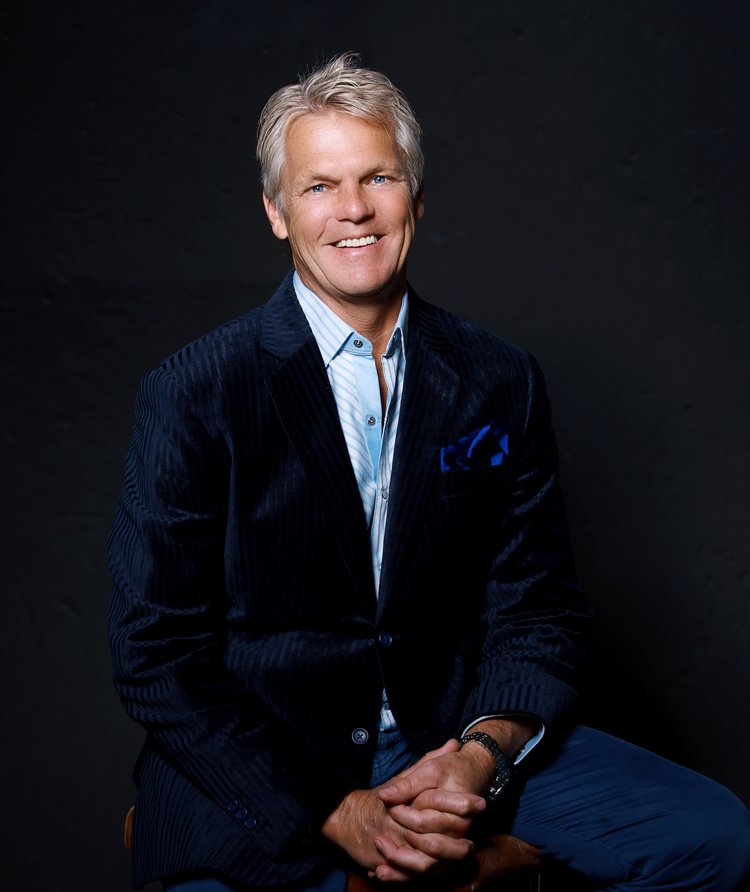Fear and Foundations by Dave LaRue

I have coached for many years and have had many amazing experiences. One that really stands out is an especially successful client who was a particular pleasure to coach. To say he was coachable would be an understatement. I loved to coach him because he was so committed to improving himself.
He had already done all the foundational work; he had done the deep dives required to understand and analyze his beliefs, and he knew how to change them when they needed a refresh. He had discovered his highest values and where his motivation came from. Since he’d built his foundation, coaching him was truly about getting to the next level. There was no “deferred maintenance” (as a realtor might say), no remedial work he’d put off.
And so, although he was already very successful by any measure, with a sense of purpose, a close, happy family, and a roster of clients that any company of any size would be proud to have, he still came to each workshop ready to stretch, discover, learn, and change his mind—as long as it helped him to grow personally and professionally.
One day, during a workshop, I gave the group 20 minutes so they could fill in their binders for a new concept about getting to the next level of success. After about 10 minutes into their work time, I noticed my special client hadn't even started filling out the concept. Everyone else was making progress on the form.
I knew he was there to work, so I became very curious about what was holding him up. As I worked my way over to him I saw that he was focused on that form like his life depended on it. I wondered if something was wrong. I asked him how it was going and what he was thinking about.
He blinked a few times and shook his head. “Dave,” he said, “this is really something. You’ve asked me to do this exercise, but you don’t know what you’ve asked.”
“I don’t?” I asked, surprised.
“No. You don’t know how my brain works,” he said, still looking at the page.
“I don’t?”
He turned to face me. “No. You see, whatever I write here? I’m going to do it.” He set his pencil down.
I felt a big smile stretching across my face. He went on.
“And that means I’ll make the investment. I’ll pay the price. So I have to think about what it’s actually going to take. Because once I write that goal down it will become real. And once it’s real, I’m committed. I won’t stop until that goal has been achieved. I’ll get new credentials, more education, I’ll move my family to be where we need to be. I’ll do whatever it takes.”
I think about this person and this conversation often. He helped me understand something that day about why people do and don’t keep achieving. Two things, really. One about foundations, and one about the wisdom of our instincts.
1. If you want to build big, you must build a strong foundation.
You can build on a weak foundation but don’t expect it to be stable. Which means, don’t expect it to be big for long.
For many people, the foundational work either doesn’t interest them or, more often, challenges them so much that they move on before it’s been done. This makes it hard to find your motivation and impossible to set goals that you will be interested in enough to achieve. I think most people reading this are well beyond the “need” stage of building their career and income streams. For us, if the only reason we have to do something is so that we will earn more money, it won’t necessarily be enough to make us do it. It has to be connected to the bigger picture: the lives we are trying to build, the people we are trying to be.
And this is to say nothing about rooting out and replacing erroneous assumptions, crippling attitudes, and limiting beliefs. There is no way to skip this work if you want to keep growing. Doing this—and doing it again whenever necessary is the only way. Why? Because life has a funny way of holding us up until we learn certain lessons. Plenty of people know that this is why their growth never really starts, but it’s also the hidden reason behind many reversals and setbacks.
We’ve all heard of or known people whose success collapsed. If we knew those people well we would see that this was because their success was built beyond their foundations.
For each of us, our success can only be as stable as the foundation supporting it.
If there are issues we know make us unstable by any measure, we need to work on those. Insecurities, sensitivities, habits, tendencies, and issues from the past all must be understood and accounted for. We don’t necessarily fix these things, but we become aware of them and able to work with them. Once we’ve done some real work, they no longer undermine or surprise us.
Think back to building your companies. Think of all the advisors you needed to connect to, the people you needed to build your teams, the clients & customers, and everything else. Think of the processes and rules you needed to create. Think of the way your family had to evolve and develop. The things you needed to learn about and cultivate within yourself. These all make up the structure you needed to get to where you are.
And you have to do this kind of work every time you plan to grow more.
2. Strong foundations are an investment, but they come at a cost.
My client was extraordinarily driven. He had a no-holds-barred approach to achieving goals. To him, the only way he knew how to get things done was to clear the decks completely so he could do whatever was necessary. If he set a goal to grow his business by 30% this year and this meant he’d need to move his family across the country, he’d do it. If he needed to borrow money, he’d borrow, if he needed to train or hire more staff, he would.
But all these things would have a cost. He needed to think about whether he could truly afford them. Would his wife go along with it? Would the kids benefit from his—and the family’s—financial success more than they would suffer from taking up their roots? What would be at stake if he borrowed? Could he handle it? Would there be pressure he might not consider? When it came to training or hiring, which was right? Was he sure this was the right long-term direction to niche his team and his company into? Would more staff work in their current facilities? What would the tradeoffs be? Could he afford them?
His extreme approach made something clear we can all learn from. He stopped where we all stop. It’s just that he knew why he was stopping: he was weighing the cost of building new foundations.
When the only course is to grow, the only course is to build foundations. And the cost of these can be very high. My client intentionally stopped to weigh them out. Many of us just stop without knowing what’s holding us up. What’s holding us up is the wisdom of our species, and instinct we are lucky to have, even though its job is to hold us back.
Unless we’re reckless and young and pure quickstart, nature has given most of us this wise internal sense that stops us from making blind leaps. It’s called fear.
Specifically fear of the unknown. It’s a blessing.
If you’re charging off into the unknown without real numbers and a plan, you’re unlikely to make it to where you’re headed.
This fear feels bad because it’s meant to. It’s meant to stop you. Literally. It’s meant to take the blood from your body and move it to your head. It’s the opposite of the instincts that move blood to the limbs so we can move fast.
Fear is wise, but all it helps us do is stop. The thinking is up to us.
The point isn’t to circumvent this powerful instinct. We must not think we can trick our fear. No, we must take our turn and give it what it wants: careful consideration and soulful attentiveness. Once it stops us, we do our part. We weigh out the costs. This is how we turn things around and ensure that fear is a blessing.
When we are stuck and unmotivated to grow, even when we stand at a crossroads and see the decision that must be made, it’s the fear that eats up our motivation. Fear of the costs of the foundations we know deep down we must build. We don't fear failure. We fear building unwisely—which dooms us to fail, but only as a consequence of being unwise. At these moments remember how ancient fear is, how little it knows how to speak your language. Fear can only make you stop. What you do once you’re stopped is where the work starts.
And as a bonus, here’s a third takeaway emerging from this one:
3. Take a moment to learn the difference between fear and intuition.
We just discussed the blessing of fear and how it’s a necessary part of growth to confront fear with thinking and planning. Fear becomes very messy when we misunderstand its purpose and its nature. It’s particularly tricky when we think it’s our personal insight into the future and not just an instinct to stop.
What so many people claim as their own personal intuition is an instinct everyone is blessed with. If you get nothing else from this article, know that what you might think of as an intuition that you, personally, should not proceed is actually a universal instinct telling all human beings to look before they leap.
So much misery and wasted potential comes from taking fear personally. So much comes from the confusion between intuition and fear.
When we understand it as an instinct, fear is a gift that stops us from wasting our lives. When we imagine the same feeling comes from a personal intuitive glimpse of the future warning us to stop, it’s the leading cause of wasted lives. What a valuable distinction to be able to make!
Here are some definitions that help me keep it clear:
Fear is a universal, automatic response to perceived danger that triggers a "fight, flight, or freeze" reaction. In this article, we talked about the “freeze” response that comes from the fear that arises in planning. Instincts happen independently of individual experiences.
As an instinct, it compels us to act rapidly to avoid or escape risks without conscious thought. Fear keeps us safe by alerting us to threats, but it can also hinder growth if we don't examine it thoughtfully.
Intuition:
Intuition is a personal insight or understanding that arrives without conscious reasoning but is based on pattern recognition, our experiences, and other personal factors. It informs rather than compels our choices.
I’d love to hear your reactions and responses to these. Cheers!
Dave
Reflection questions
- To what extent do you take fear personally, and to what extent have you learned that it’s an instinct you don’t choose to have?
- What have you learned about foundation-building in your life?
- What areas of your life or business do you feel need a stronger foundation for you to reach the next level of success? What specific steps can you take to build that foundation?
- What is one area of insecurity, sensitivity, or unresolved issues from your past that you feel may be limiting your growth and success today? What steps can you take to address this "deferred maintenance" and shore up your personal foundation?









